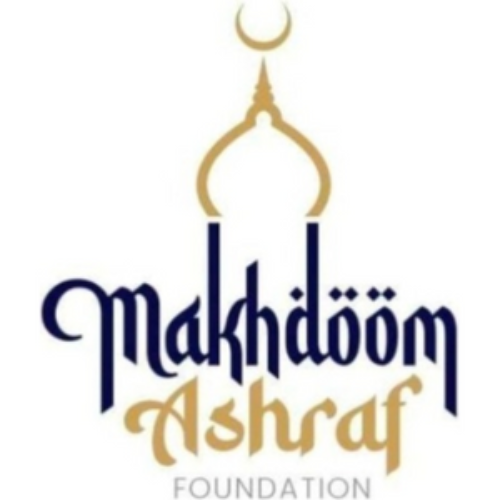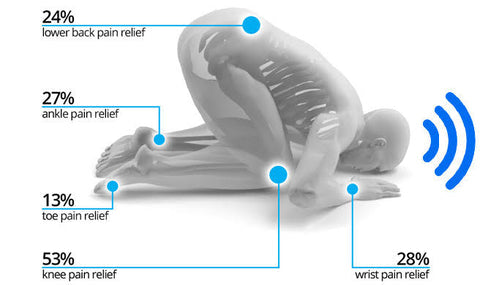There are several medical benefits of Salat(Namaz):- of offering Salah and as every Muslim knows that the best part of Salah is the sujood, that is the prostration.
No wonder the Quran has mentioned the word sujood, prostration no less then 90 times in the glorious Quran.

Normally when you [stand] erect, blood does flow into the brain but it is not sufficient for a healthy brain. During Salah when you [go into] sujood extra blood flows into the brain, which is very important for [a] healthy brain. When you do sujood, this extra blood supply to the skin on the face [helps] prevent diseases such as chilblain etc.


What are the health benefits of Salah?
Performing Salah every day:
▻ Calms mind & body
▻ Reduces stress, anxiety & even epilepsy
▻ Reduces low back pain
▻ Decreases neuro-musculoskeletal dysfunction
▻ Improves circulatory system
▻ Increases consciousness & longevity
▻ Increases the elasticity of joints

Mind is not directly under control.
Psychologists say that the human-mind is not directly under our control and many a times it keeps wandering. The body is directly under our control. If we want to raise our hands, we can raise them, if we want to take a step forward, we can do it. But human mind is not directly under our control. Therefore to humble the mind you have to humble the body and there is no better way of doing this than what we Muslims do i.e. to bring the highest part of the body i.e. the forehead to the lowest level (i.e. the ground) and then say ‘Subhana Rabbi al-Aala’, i.e. Glory be to Allah, the Most High.

Medical benefits of Salah:
Besides the spiritual and social benefits, there are several physical and medical benefits of Salah.
1. Ruku – Bowing:
During Salah when a person bows down in Ruku :-
a. Additional blood is pumped in the upper part of the body.
b. Spine is made supple.
c. Spinal nerves are nourished and this provides relief for back-ache and pain.
d. Effective posture against flatulence.
2. Ar-Rafu – standing after bowing:
When a person stands up from Ruku, fresh blood which was sent to the upper half of the body returns back to its normal flow and the body is relaxed.
3. Sajdah – Prostration:
Sajdah causes drainage of the bronchial tree and prevents the secretions from accumulating in it. It is a natural treatment for drainage of secretions in bronchiectasis and other pulmonary diseases leading to stasis of secretions, dust of various kinds and bacteria.
f. Exhaling of residual air:
Normally only 2/3 rd of the lung capacity receives fresh air. The remaining 1/3 rd is residual air . During Sajdah the abdominal viscera press against the diaphragm which presses against the lower lobes of the lungs and that helps in exhaling the residual air thus allowing more fresh air to be inhaled and thereby maintaining healthy lungs.
g. Increased venous return from the abdominal organ:
During Sajdah due to reduced gravitational force, the venous return from the abdominal organs are increased.
h. Useful against femoral and esophageal hernia:
The Sajdah and Ruku postures are very useful against femoral and esophageal hernia by decreasing pressure at these openings.
i. Prophylaxis against hemorrhoids (piles) and prolapse of uterus:
Sajdah can help a lot in prophylaxis against hemorrhoids (piles) and prolapse of uterus.
j. Increased venous return to lower half of the body.
During Sajdah when a person lays his body weight on legs flexed at knee, the soleus muscle (in the back part of the lower leg or calf) which has extensive venous network and is also called as the peripheral heart of the body is put into action which increases venous return from the lower half of the body and also acts as a massage for these muscles.
k. Beneficial against cervical and other spinal diseases
During Sajdah, a person supports his body on knees, hands and forehead. This posture has it is effects on the inter vertebral joints especially in the cervical and other spinal diseases. Due to the sedentary lifestyle and and lack of bodily movements, heart problems have increased in the modern world. The posture is Sajdah is an effective cure in cardiac disease.
4. Jalsa – Squatting:
i. Fresh blood which was sent to the upper half of the body returns to normally and the body is relaxed.
ii. Stimulates circulation in the nerves and muscles of the thigh.
iii. Relaxes the muscles of the body including those related to the spine.
iv. Eliminates indigestion and constipation.
v. Beneficial against peptic ulcer and other stomach ailments.
m. Rising back to standing position (Qiyam)
5. Rising from sitting to standing position on the toes puts the complete body weight on the toes and thus
i. Increases the strength of the muscles of the backbone, thighs, knees and legs.
ii. Reduces backache.
iii. Reduces degenerative disease of the knee.
6. Medical benefits are only side dishes, Salah is offered for pleasing and thanking Allah:
We Muslims do not offer Salah for all these worldly perks. We offer Salah to thank Allah (سبحانه و تعالى), to please Him and to follow His commandments. These health benefits are only fringe profits which may attract an unbeliever or a person of less faith. Thus our main course is to seek Allah’s pleasure.
By offering Takbir at the beginning of Salat, we move hand and shoulder muscles thereby increasing the flow of blood towards torso. Akamat performs a similar function. The most important function in Salat is Sajdah where we touch the ground with our forehead. This posture increases fresh supply of blood to our brain. In Tashahud position, our hip, elbow, knee joints, backbone, wrist joints move in a way that it provides a form of relaxation to our entire body. Pressure is applied on the body parts as if it was a kind of massage which releases tension. A remarkable tissue in our body is cartilage. It is unique in being a living tissue with no direct blood supply. The only way it receives nutrients and oxygen is by movements of the joints. Salat therefore, has many orthopedic benefits for all Muslims. These body movements performed during Salat are an excellent source of exercise for our heart as well. According to a Hadith of the Holy Prophet (صلى الله عليه وعلى آله وسلم) ,“There is an organ in the body, when it is healthy, the whole body is healthy, and when this is sick, the entire body becomes sick. It is the heart.” And Allah Knows the Best.
Dua recited after every Fard Salah
It is in the Hadith quoted from Sunan Abi Dawud 1512
حَدَّثَنَا مُسْلِمُ بْنُ إِبْرَاهِيمَ، حَدَّثَنَا شُعْبَةُ، عَنْ عَاصِمٍ الأَحْوَلِ، وَخَالِدٍ الْحَذَّاءِ، عَنْ عَبْدِ اللَّهِ بْنِ الْحَارِثِ، عَنْ عَائِشَةَ، رضى الله عنها أَنَّ النَّبِيَّ صلى الله عليه وسلم كَانَ إِذَا سَلَّمَ قَالَ " اللَّهُمَّ أَنْتَ السَّلاَمُ وَمِنْكَ السَّلاَمُ تَبَارَكْتَ يَا ذَا الْجَلاَلِ وَالإِكْرَامِ " .
'Sayyedah Aishah said: When the Prophet (ﷺ) uttered taslim, he used to say: "O Allah, You are As-Salam, and from you is As-Salam. You are blessed, O One of Magnificence and Generosity."
Sunan Abi Dawud 1512
Chapter 511: What A Person Should Say When He Says The Taslim, Book 8: Prayer (Kitab Al-Salat): Detailed Injunctions about Witr


Share and get 15% off!
Simply share this product on one of the following social networks and you will unlock 15% off!